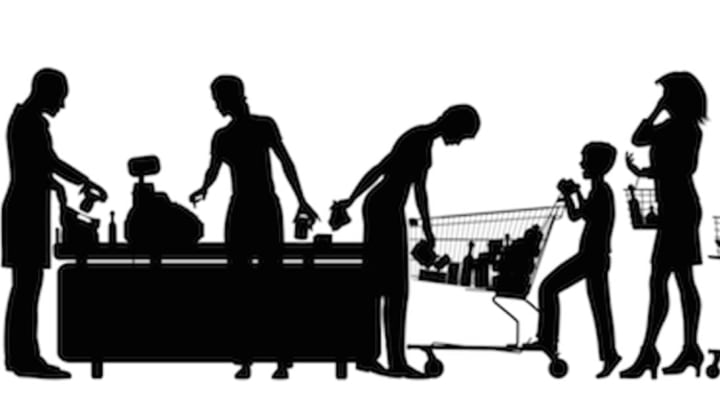Because it probably is. Delays at the register are frequent, random, and hard to predict. Each delay causes a slight backup that makes the line move slower. If there are four lines at the grocery store, your chance of picking the fastest one—independent of length—is just 25 percent. Usually, you're left feeling like that guy who probably wasn't even in the store when you got in line is now checking out before you.
That may sound obvious and inevitable, but queuing theorists—mathematicians who study things like traffic engineering, factory design, and internet infrastructure—can tell you there's a way around this random injustice. But even though we've seen this great equalizer at work, we prefer the lottery system. Turns out, we should all wait in one long serpentine line and be called up to an open register as one becomes available. This way, any delay is equally dispersed among the people still in the queue.
Lots of places make use of this strategy—train ticket booths, banks, and the Duane Reade near me come to mind—but people tend to balk at the visually long lines they create, preferring to take their chances in the hopes of picking the line that cruises.
So next time you're steaming about how the person in front of you is insisting on counting out exact change, just remember, it's our competitive nature that keeps us from having efficient things.
